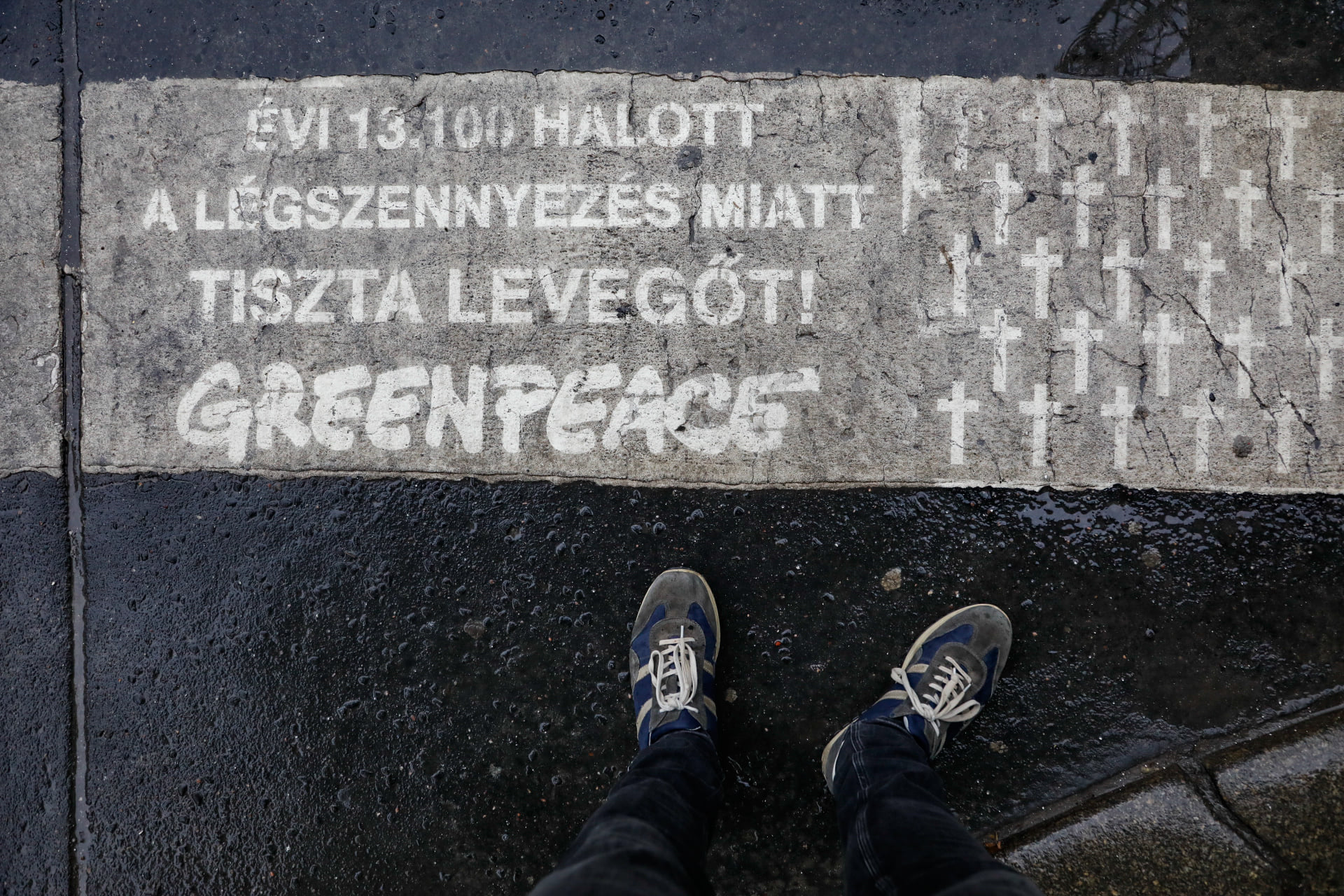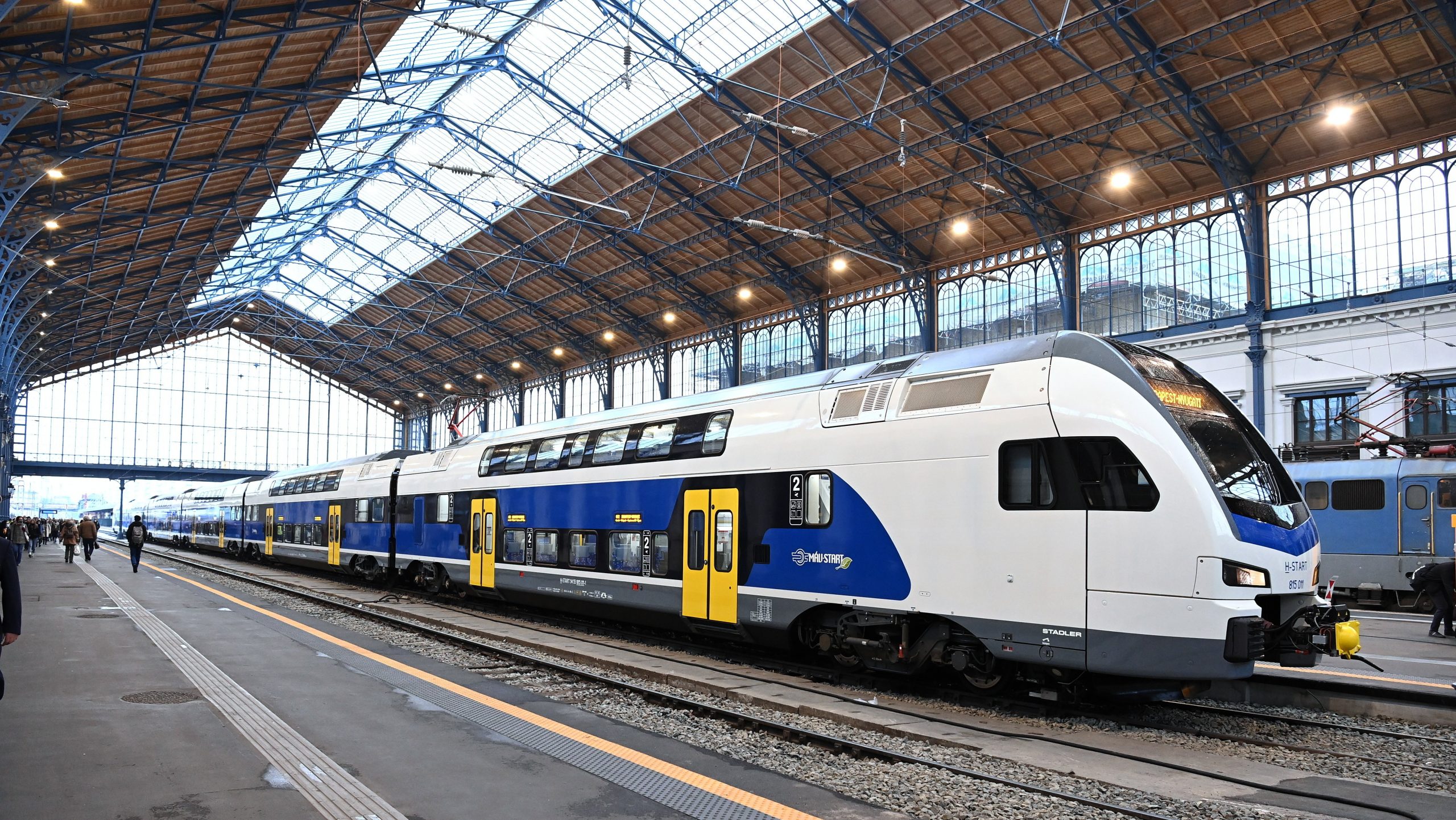
"Air pollution kills 13,100 people a year. Clean Air!", Greenpeace Hungary painted on crosswalks in Budapest.Continue reading

More than half of the most popular short-haul flights in Europe could be replaced by train services, whereas many trips could be made easier by train, according to research by OBC Transeuropa (OBCT) commissioned by Greenpeace EU.
This article was originally posted on our sister-site, Ungarn Heute.
The study examined a total of 150 short-haul flights in the EU and 250 outside of Europe. It is already possible to replace about one in three European short-haul flights with rail: train connections with a travel time of fewer than six hours are available for 29 percent of short-haul flights, and direct overnight train connections are available for another 15 percent.
The change would affect Hungary and Budapest as well. For example, Greenpeace proposes for Austria to ban short domestic flights as well as air connections from Vienna to Prague, Budapest, and Munich, between which there are already good day trains.
According to Greenpeace, short-haul flights are about twelve times more harmful to the climate than parallel train services.
“Replacing all the top 250 short-haul flights in Europe with trains would result in annual CO2 savings of around 23.5 million tons per year. This is equivalent to the annual CO2 emissions of the whole of Croatia,”
said Herwig Schuster, transport spokesman for Greenpeace, adding that trains need to become faster, especially in Eastern and Southeastern Europe.
Greenpeace EU climate and energy campaigner, Lorelei Limousin, noted:
“The aviation industry is one of the most climate-damaging and unjust industries on earth. Instead of continuing to back major polluters like airlines and airports, public money should be going towards more climate-friendly and efficient alternatives like trains.”
“Our analysis shows that one-third of short-haul flights have train alternatives under six hours in the EU,” stated Greenpeace. “European policy-makers and countries should ban short-haul flights wherever a viable alternative already exists, and invest in rail to create a European transport system that’s good for the planet while also being affordable and accessible to all.”
The key findings of the study are the following:
Since 2019, traveling across borders by train in Europe has become extremely difficult. In countries like Spain, Portugal, France, and Italy, night trains were canceled, while service has improved on several international routes like Brussels-Vienna, Stockholm-Berlin, and Amsterdam-Munich, Greenpeace reports. Just banning the EU’s busiest short-haul flights and shifting to rail wherever a train connection under six hours already exists would save 3.5 million tons of CO2e per year.
Alongside the research, Greenpeace published an interactive map of Europe where anyone can add the train routes they would like to see created or improved.
Featured image via Zoltán Máthé/MTI